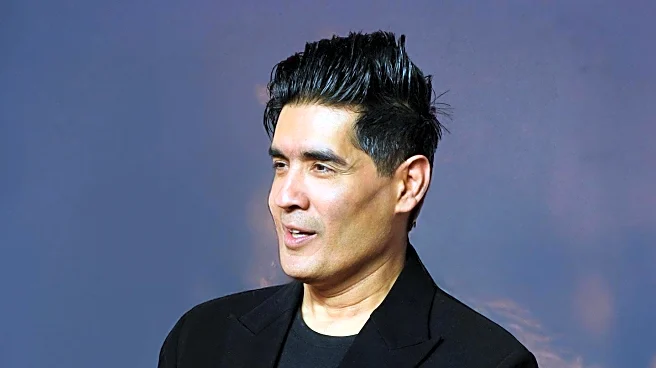What's Happening?
The Council of Fashion Designers of America (CFDA) has partnered with Oushq, an e-commerce platform co-founded by Jessel Taank from The Real Housewives of New York City, to celebrate Diwali and promote
South Asian and Middle Eastern designers. This marks the first time CFDA has celebrated Diwali, highlighting its commitment to diversifying the fashion industry. The partnership aims to provide a platform for designers from these regions, offering them access to U.S. buyers, media, and credible stages. The initiative includes pairing Indian and American designers to create themed capsule collections, fostering innovation in Indowestern design. The collaboration seeks to turn representation into visibility, providing young designers with opportunities for feedback, press, orders, and mentorship.
Why It's Important?
This partnership is significant as it addresses the challenges faced by South Asian and Middle Eastern designers, primarily access to the U.S. market and media ecosystem. By providing a structured path for these designers, the initiative aims to grow their businesses beyond traditional runway shows. The collaboration with CFDA underscores the importance of inclusivity and diversity in the fashion industry, potentially leading to a more globally connected market. It also highlights the growing consumer demand for unique and culturally rich fashion pieces, which can drive innovation and exclusivity in the industry.
What's Next?
The Oushq x CFDA program will continue to champion collaborations between American and Indian designers, producing exclusive collections for Oushq. This initiative is expected to open new doors for designers, offering them real-world opportunities to expand their reach and influence. As the program progresses, it may inspire similar partnerships across other sectors, further promoting diversity and inclusivity in the fashion industry.
Beyond the Headlines
The partnership between CFDA and Oushq not only promotes cultural diversity but also challenges the traditional norms of the fashion industry. By embracing indigenous craft systems and translating them into everyday silhouettes, the initiative could lead to a long-term shift in how fashion is perceived and consumed. It also raises ethical considerations about representation and visibility, encouraging the industry to recognize and celebrate diverse voices and perspectives.










